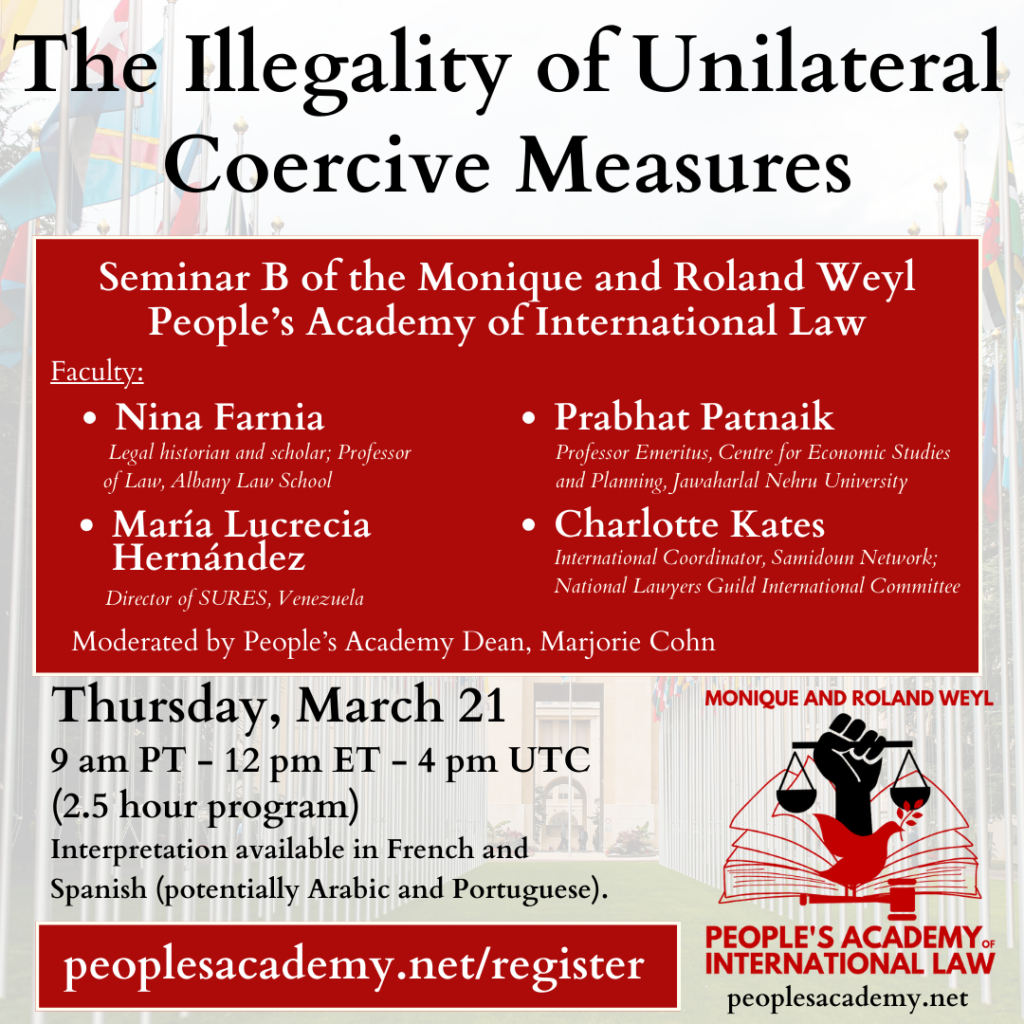Seminar B of the People's Academy of International Law: The Illegality of Unilateral Coercive Measures
Seminar B: The Illegality of Unilateral Coercive Measures -
Thurs. March 21, 2024
Seminar B: The Illegality of Unilateral Coercive Measures took place on Thursday, March 21, 2024.
Faculty for Seminar B:
- Nina Farnia – Legal historian and scholar; Professor of Law, Albany Law School; co-chair, International People’s Tribunal on US Imperialism
- Prabhat Patnaik – Professor Emeritus, Centre for Economic Studies and Planning, Jawaharlal Nehru University, New Delhi
- María Lucrecia Hernández – Director of SURES, Venezuela
- Charlotte Kates – International Coordinator, Samidoun Palestinian Prisoner Solidarity Network; National Lawyers Guild International Committee
The program was moderated by Marjorie Cohn, Dean of the People’s Academy of International Law.
With the blockade of Cuba, the U.S. launched an era of Unilateral Coercive Measures, known as UCMs. UCMs are economic acts of a hostile nature, taken by a state to compel policy changes by another state. While some claim that UCMs are a form of lawful pressure, in fact UCMs are unlawful acts of economic aggression, prohibited by the U.N. Charter, treaties, the laws of international governmental organizations, and the International Court of Justice. International movements have developed to resist the UCMs imposed by the U.S. and its European Union allies against over 40 UN member states. International resistance movements and affected states have documented multiple widespread human rights violations caused by UCMs, including to life and health, in countries such as Venezuela, Zimbabwe and Iran.
English language video
Spanish language video
Further resources and presentations
- Nina Farnia’s PowerPoint: Sanctions and Racial Repression in U.S. Imperialism
- Maria Lucrecia Hernandez, Seminario B: La ilegalidad de las medidas coercitivas unilaterales
- Charlotte Kates’ PowerPoint: The Siege on Gaza has Always been a Genocide
- People’s Tribunal on U.S. Imperialism: Sanctions, Blockades, Coercive Economic Measures

